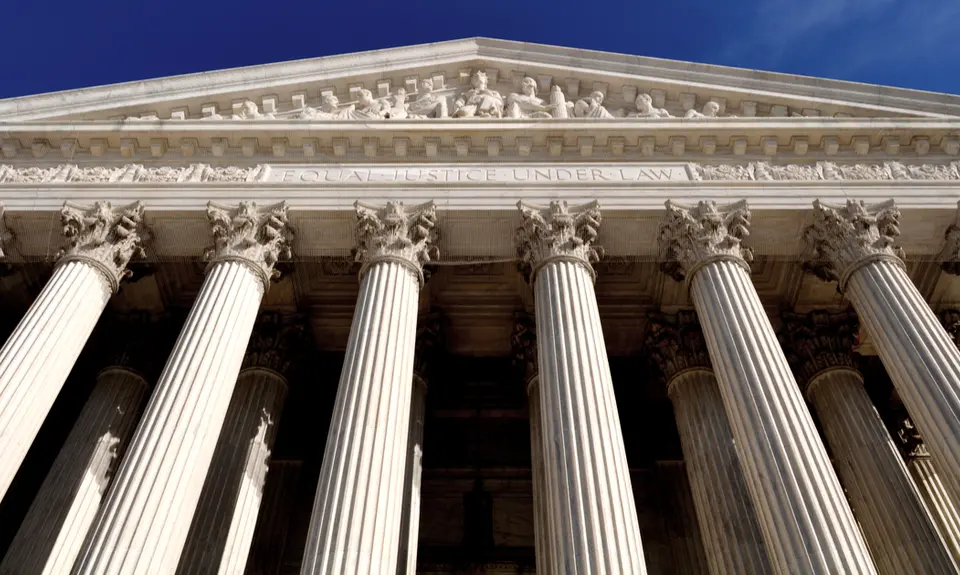As we wait for President Biden to announce his nominee to replace Justice Breyer on the Supreme Court, many have speculated on her potential impact. Some have even speculated that this nomination process is not important, because of the continued 6-3 conservative power balance.
Following on from Senior Counsel at People For the American Way, Paul Gordon’s, opinion piece in the Hill from February 22, 2022 about the power of dissent, we know this is far from true. Biden’s nominee will have a lifetime appointment to the Court. With it, they will have the power to shape legal and public opinion through dissent. At least for now, for no one truly knows when the Court’s make up will change again.
When thinking about the Supreme Court we often focus on the decisions issued by the majority. However, those in the minority have an incredible power: dissent. Dissent, arguing against the majority opinion in the justices’ chambers or in written opinion, serves important ends; it gives voice to those overlooked by the majority; it can shape public discourse, move Congress to act, and influence future decisions.
Shaping the Public Discourse
A powerful dissent that continues to shape public opinion is Justice Ruth Bader Ginsburg’s minority opinion in Shelby County vs. Holder (2013). The conservative majority gutted the preclearance provision of the Voting Rights Act of 1965. They claimed that since so much progress had been made it was no longer necessary.
Defiantly, Justice Ginsburg wrote, “Throwing out preclearance when it has worked and is continuing to work to stop discriminatory changes is like throwing away your umbrella in a rainstorm because you are not getting wet.” Her metaphor revealed the absurdity of the majority’s logic. Her phrasing has shaped the public conscience and is a continuing rallying cry for activists around voting rights.
Moving the Legislature to Act
A Justice Ginsburg dissent also moved Congress to correct the Court’s mistake through passage of the Lilly Ledbetter Fair Pay Act (2009). That dissent was in the case Ledbetter v. Goodyear Tire and Rubber Co. (2007). The majority ruled that Ledbetter could not sue her employer for 20 years of paycheck discrimination, because she had not sued within 180 days of the first discriminatory act. Ledbetter, of course, had not known of the discrimination until much later as companies tend to keep salary information private.
Ginsburg’s dissenting opinion was a cultural and political sea change moment for the equal pay movement. “The Court does not comprehend or is indifferent to the insidious way in which women can be victims of pay discrimination.”
Writing directly to her fellow Justices and Congress she continued, “This is not the first time the Court has ordered a cramped interpretation of Title VII, incompatible with the statute’s broad remedial purpose. Once again, the ball is in Congress’ court. As in 1991, the Legislature may act to correct this Court’s parsimonious reading of Title VII.” Two years later, citing Ginsburg’s dissent in debate, Congress signed The Lilly Ledbetter Fair Pay Act into law. It reinforced Title VII and protections against pay discrimination.
Shaping Future Decisions
Justice Louis Brandeis’s dissent in Olmstead vs. United States (1928) is the foundation of several contemporary majority opinions that confer critical rights to the people. While the case was later overturned, Brandeis's dissent, arguing against government overreach, lives on. “The makers of our Constitution undertook to secure conditions favorable to the pursuit of happiness…They conferred, as against the Government, the right to be let alone -- the most comprehensive of rights and the right most valued by civilized men.”
The Court uses the “right to be let alone” to uphold the constitutional right to abortion, contraception, buffer zones for patients visiting abortion care clinics, and the right to possess a film at home deemed “obscene” by the state.
The new Supreme Court nominee's influence will go well beyond her position in the minority a 6-3 conservative court. We are adding a new justice with her own life experience, legal perspective, and expertise. This gives her the untold possibility of shaping her fellow justice’s thoughts and public discourse as she writes her dissents. She will, no doubt, leave her mark on the Court of today and tomorrow.
